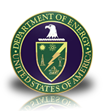 |
 |

The Worker Health Protection Program (WHPP) is the DOE's Former Worker Medical Screening Program at 13 DOE sites. WHPP provides free medical evaluations for selected occupational diseases every three years to eligible former DOE workers under a national medical protocol established by the DOE. WHPP is funded by the DOE and is operated by a consortium of the City University of New York, the United Steelworkers, and the Atomic Trades & Labor Council in association with clinical facilities in communities near DOE sites. The sites covered under WHPP include the K-25 Gaseous Diffusion Plant, Y-12 National Security Complex, Oak Ridge National Laboratory, Portsmouth Gaseous Diffusion Plant, Paducah Gaseous Diffusion Plant, Idaho National Laboratory, Brookhaven National Laboratory, Nevada National Security Site, Lawrence Livermore National Laboratory, Lawrence Berkeley National Laboratory, Sandia National Laboratories, CA, and the former Mound and Fernald sites.
 In 2000, the WHPP added low-dose CT scanning for early lung cancer detection to the medical screening on a pilot basis at a limited number of DOE sites, which was then expanded in 2006, 2009, and 2012. Lung cancer is the most common cause of cancer death in the United States. Low-dose CT scanning is an effective means to identify lung cancers at a stage when they may be curable. Presently, the WHPP low-dose CT scanning program is the largest occupational medical screening program for lung cancer detection in the country. To date, through this program, over 11,000 DOE workers at 8 sites have been screened for lung cancer using low-dose CT scans. At least 85 participants have been found to have lung cancer, and the majority were detected at the earliest stages of cancer.
In 2000, the WHPP added low-dose CT scanning for early lung cancer detection to the medical screening on a pilot basis at a limited number of DOE sites, which was then expanded in 2006, 2009, and 2012. Lung cancer is the most common cause of cancer death in the United States. Low-dose CT scanning is an effective means to identify lung cancers at a stage when they may be curable. Presently, the WHPP low-dose CT scanning program is the largest occupational medical screening program for lung cancer detection in the country. To date, through this program, over 11,000 DOE workers at 8 sites have been screened for lung cancer using low-dose CT scans. At least 85 participants have been found to have lung cancer, and the majority were detected at the earliest stages of cancer.
Recently, WHPP interviewed some of the former workers from the Oak Ridge DOE sites who had been through the program and asked them how participating in the WHPP medical screening program had been helpful to them. The results of those interviews were captured in this photo essay about their experience in the program. Please take a few minutes and watch the new photo-essay about this program: